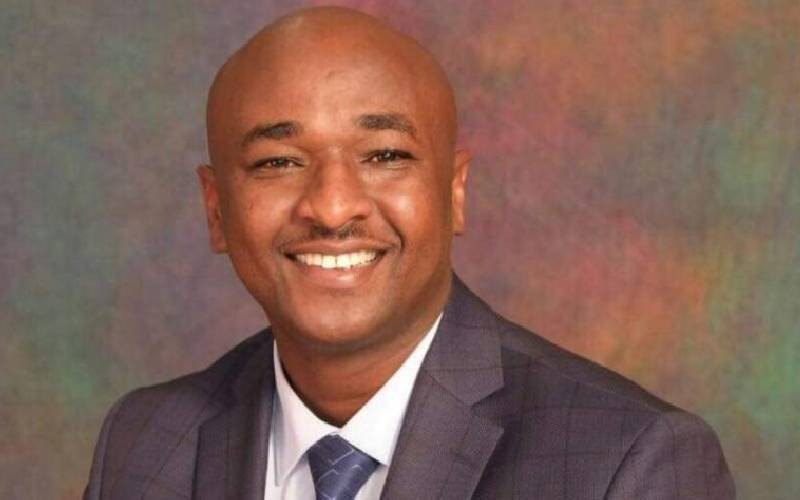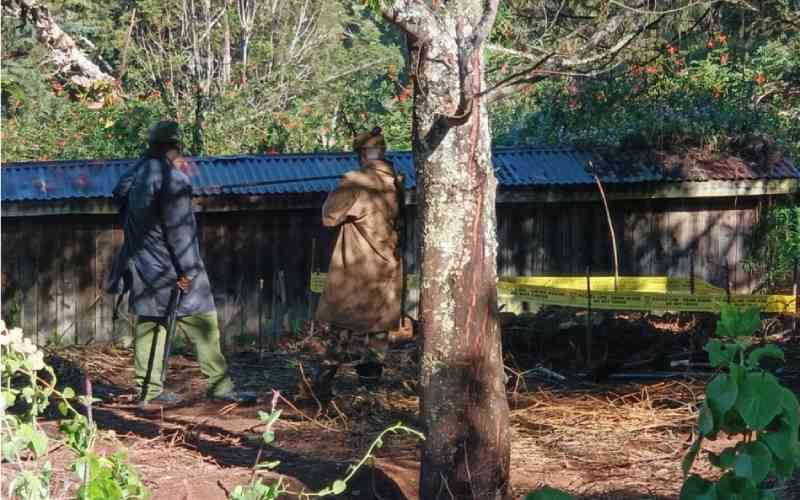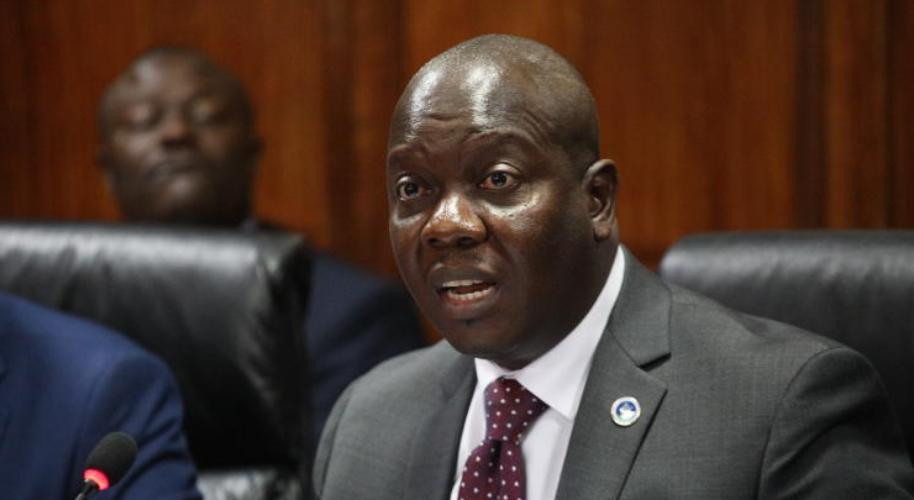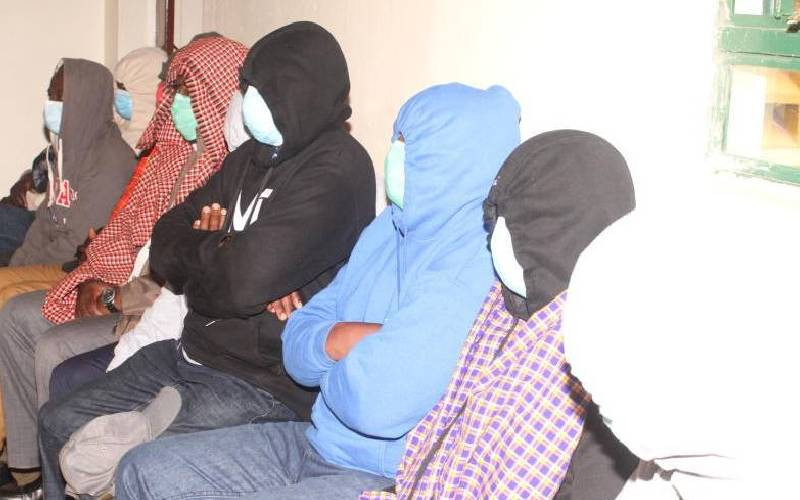I am frightened. I am actually extremely worried. Somehow the disappearance and death of Kenyans no longer come as shocking news to us. It is really worrying. What is even more frightening is that state agencies charged with protecting us from arbitrary death or physical disappearance don’t seem to get bothered when such things occur.
The phrase “investigations are still going on” has become a euphemism for “ we are not bothered; it is none of our business.” Surely: what type of Kenya are we living in?
For me it is personal. My brother disappeared mysteriously in July 1980 in Mombasa at a time when we had a crisis at the University of Nairobi. I was a lecturer in political science. When I was picked up and locked up in police cells accused of “teaching students revolution” —at least that is what they told me when questioned— the students went on strike, and swore not to resume classes unless I was released. On being released and back to the university in the morning, I learnt my brother had disappeared in Mombasa. He was a sales executive with Esso oil company.
To cut a long story short, our desperate attempts to look for him were fruitless. To be fair to Mr Ochanda, who was then head of the Port Police, I received tremendous support from his team. But after three weeks of working together, Mr Ochanda and all his men were transferred from Mombasa, scattered to all corners of our republic. We never recovered the body of our brother Charles Anam, and the deep scars of loss live with us to this very day.
Ten years later I was reliably informed by a senior police officer that no matter how hard we tried we would never solve the mystery. What is even worse our trying to seek an official solution through state security and legal offices would spell danger to us. Why? Because “there was politics involved.” Many Kenyans continue to suffer the same fate.
I guess that is why Kungu Karumba’s family will never resolve the mystery of his disappearance. I guess that is why Maina Njenga, having lost two wives in gangland type shoot outs, will never know who killed his dear ones. In the same breath I would venture to say that former Commissioner of Police, Phillip Kilonzo must be crying in his grave knowing full well that his loved ones would never know how he mysteriously died in a hotel somewhere in Ukambani while enjoying a drink with friends not too long after the mysterious death of John Robert Ouko.
More recently a young man called Odek was gunned down in Nairobi’s Eastlands and nothing has been heard about that dastardly act. Spin doctors claimed he was involved in tussles over land deals. If that is the case why can’t the police investigate and bring the culprits to courts of law?
There is a common belief among all of us that life is sacrosanct. In other words, nobody is allowed to kill another one just like that except, perhaps, in war. More than that, we all believe that when we have a government its first duty is to protect human life. Our Constitution gives this responsibility to our government. The same Constitution also tells us that we all have a right to life irrespective of sex, political affiliation, race, religion, ideology, tribe, etc etc.
The fact that I have committed a crime or I am believed to be predisposed to commit a crime does not deprive me of my fundamental right to life. It only makes me subject to arrest and the due process of law which will decide whether I am guilt or not.
What has happened in Kenya is that we have gone through a long period of time when sporadic and arbitrary loss of life has made us regard this as “normal”. We seem to have adjusted to the situation simply by shrugging our shoulders and saying “yes it happens: so what?” We feel the whole damn thing does not touch us: “it happens to those thieves, those political types: not us.” In the end most of us have adjusted to the flip side of the old adage: we are not our brother’s keeper!
So we come to Meshack Yebei, or is he Yusuf Hussein? To me the confusion is deliberate; it is meant to trivialise the issue as we have trivialised the loss of life for a long time. Once a “proper” DNA test is done by a “proper” security and intelligence agency, the identity of any individual cannot really be left to guess work.
DNA tests are done to eliminate guess work. Finger print tests are done by the police to eliminate guess work. In the case of Yebei none of these tests are claimed by the police to be conclusive, and the whereabouts of Yebei remain a mystery close to a month since he went missing. In the meantime we have a human body which the family claims is that of Yebei!
Surely how much pain are the security forces prepared to put the family through? And for how long are we as Kenyans prepared to sit by while such things happen over and over again?
I remember when the late John Michuki said, as the then Minister for Internal Security during the Coalition Government, that the police would continue to eliminate Mungiki, and that parents of such people had to prepare to buy more coffins and dig more graves. John was a decisive and no nonsense man, and he had used this quality effectively in the Transport docket. But dealing with criminal offence which may lead to a death penalty is rather different from dealing with a traffic offender. Spontaneous “justice” in this latter case which leads to questionable punishment can be corrected when subsequently reviewed.
In the case of an arbitrary death penalty any subsequent review is incapable of restoring life even when the victim is proved to be innocent beyond any shadow of doubt.
Stay informed. Subscribe to our newsletter
John Michuki’s zeal, while justifiably targeted towards what he regarded as a menace to public security, gave immense room for abuse of power by the security forces under the guise of “fighting Mungiki”. One would never tell how many purely personal conflicts were settled violently under the guise of fighting Mungiki without the knowledge of Hon Michuki.
All said and done, under our Constitution and within the context of civilised behaviour nobody— including Mungiki— should be deprived of life arbitrarily. The reason why we have the Constitution and the law is that all of us, including some of the most despicable individuals, are entitled to the due process of law when suspected of any criminal behaviour.
Meshack Yebei is supposed to have disappeared due to his involvement as a witness in the ICC trials. Don’t mind which side he might have been on: the responsibility of the security forces is to see that justice is done.
But I get really worried when individuals speak in public and say very clearly that they know who organised the disappearance and they are not questioned by the police. We are back to where we began: the police feel no urgent responsibility to do anything. After all, “that is a political case.”
 The Standard Group Plc is a
multi-media organization with investments in media platforms spanning newspaper
print operations, television, radio broadcasting, digital and online services. The
Standard Group is recognized as a leading multi-media house in Kenya with a key
influence in matters of national and international interest.
The Standard Group Plc is a
multi-media organization with investments in media platforms spanning newspaper
print operations, television, radio broadcasting, digital and online services. The
Standard Group is recognized as a leading multi-media house in Kenya with a key
influence in matters of national and international interest.
 The Standard Group Plc is a
multi-media organization with investments in media platforms spanning newspaper
print operations, television, radio broadcasting, digital and online services. The
Standard Group is recognized as a leading multi-media house in Kenya with a key
influence in matters of national and international interest.
The Standard Group Plc is a
multi-media organization with investments in media platforms spanning newspaper
print operations, television, radio broadcasting, digital and online services. The
Standard Group is recognized as a leading multi-media house in Kenya with a key
influence in matters of national and international interest.









